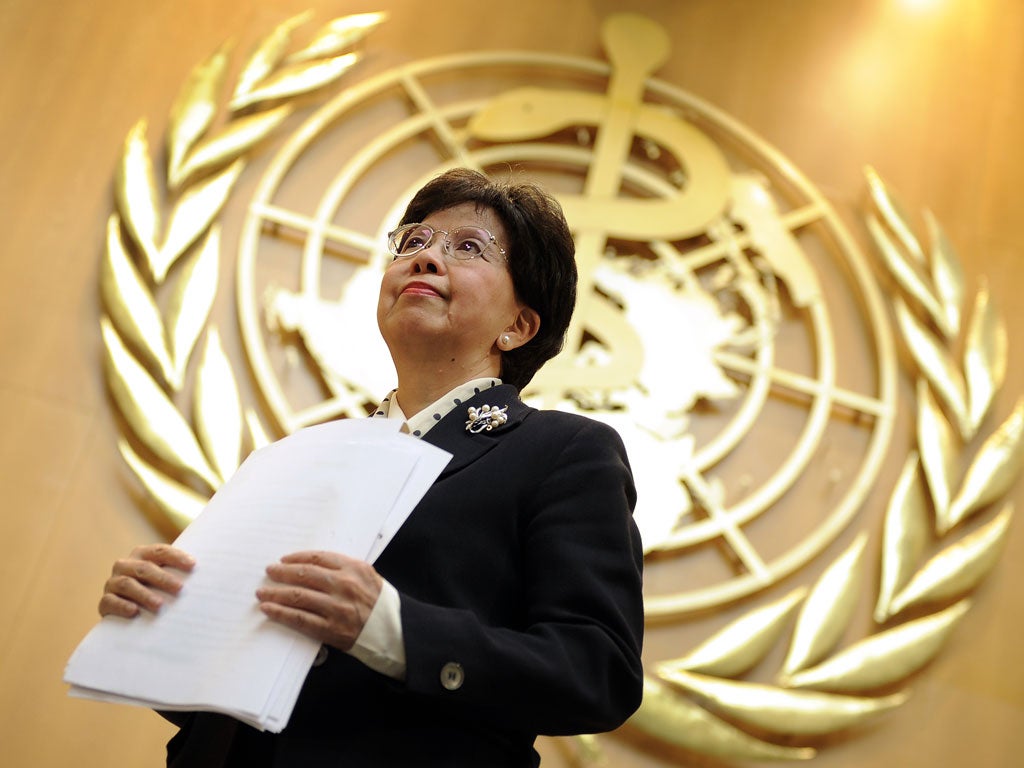Health chief warns: age of safe medicine is ending
Antibiotic crisis will make routine operations impossible and a scratched knee could be fatal

The world is entering an era where injuries as common as a child's scratched knee could kill, where patients entering hospital gamble with their lives and where routine operations such as a hip replacement become too dangerous to carry out, the head of the World Health Organisation (WHO) has warned.
There is a global crisis in antibiotics caused by rapidly evolving resistance among microbes responsible for common infections that threaten to turn them into untreatable diseases, said Margaret Chan, director general of the WHO.
Addressing a meeting of infectious disease experts in Copenhagen, she said that every antibiotic ever developed was at risk of becoming useless.
"A post-antibiotic era means, in effect, an end to modern medicine as we know it. Things as common as strep throat or a child's scratched knee could once again kill."
She continued: "Antimicrobial resistance is on the rise in Europe, and elsewhere in the world. We are losing our first-line antimicrobials.
"Replacement treatments are more costly, more toxic, need much longer durations of treatment, and may require treatment in intensive care units.
"For patients infected with some drug-resistant pathogens, mortality has been shown to increase by around 50 per cent.
"Some sophisticated interventions, like hip replacements, organ transplants, cancer chemotherapy, and care of preterm infants, would become far more difficult or even too dangerous to undertake."
Britain has seen a 30 per cent rise in cases of blood poisoning caused by E. coli bacteria between 2005 and 2009, from 18,000 to more than 25,000 cases. Those resistant to antibiotics have risen from 1 per cent at the beginning of the century to 10 per cent.
The most powerful antibiotics are carbapenems, which are used as a last line of defence for the treatment of resistant infections.
In 2009, carbapenem-resistant K. pneumoniae, a bug present in the gut, were first detected in Greece but by the following year had spread to Italy, Austria, Cyprus and Hungary.
The European Centre for Disease Control and Prevention reported that the percentage of carbapenem-resistant K. pneumoniae had doubled from 7 per cent to 15 per cent. An estimated 25,000 people die each year in the European Union from antibiotic-resistant bacterial infections.
In the UK, the Government pledged £500,000 for research into the threat last month.
Dr Chan was speaking as the World Health Organisation launched The Evolving Threat of Antimicrobial Resistance: Options for Action, a book which warns that breakthrough treatments discovered in the last century for flu, tuberculosis, malaria and HIV may become ineffective in the coming years.
She called for action to restrict the use of antibiotics in food production and a crackdown on counterfeit medicines. "Worldwide, the fact that greater quantities of antibiotics are used in healthy animals than in unhealthy humans is a cause for great concern," she said.
Discovering new medicines to treat resistant superbugs has proved increasingly difficult and costly, as they are taken only for a short period and the commercial returns are low.
Dr Chan continued: "In terms of new replacement antibiotics, the pipeline is virtually dry. The cupboard is nearly bare.
"From an industry perspective, why invest considerable sums of money to develop a new antimicrobial when irrational use will accelerate its ineffectiveness before the investment can be recouped?"
She called for measures to tackle the threat by doctors prescribing antibiotics appropriately, patients following their treatment and restrictions on the use of antibiotics in animals.
But she said attention was "still sporadic" and actions "inadequate".
"At a time of multiple calamities in the world, we cannot allow the loss of essential antimicrobials, essential cures for many millions of people, to become the next global crisis," she said.
Join our commenting forum
Join thought-provoking conversations, follow other Independent readers and see their replies
0Comments